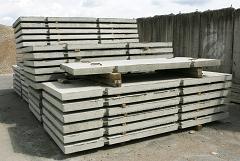Russia and its neighbors may boost crude oil shipments through an Israeli pipeline, helping them compete against Persian Gulf nations for sales in Asia
Published:
3 November 2003 y., Monday
The 254-kilometer Eilat-Ashkelon pipeline, which has flowed from the Red Sea to the Mediterranean for more than 30 years, will reverse direction for a second time in November. A tanker is set to leave the Red Sea port of Eilat, bound for Asia, with oil sent from Ashkelon on the Mediterranean.
Russia wants to sell more oil in Asia, where demand is growing faster than in Europe, as China and Japan seek to reduce their dependence on Middle East exports. The pipeline gives oil companies an alternative to the longer route around Africa and lets them avoid restrictions in Egypt's Suez Canal.
How much crude will be exported across Israel will depend on the so-called arbitrage window, when Russian oil prices are low enough to attract Asian buyers. The pipeline may make Russian crude oil, which costs about four times as much to produce as Middle Eastern grades, more competitive by reducing transport distances and costs.
Very large crude carriers, or VLCCs, which can carry about 2 million barrels of oil, take 10 days to travel from the Red Sea to Asia compared with 30 to 35 days from the Mediterranean.
A tanker is scheduled to unload about 2 million barrels of Russian Urals and Kazakh Tengiz crude at Ashkelon in the second half of November, shipbrokers said.
Šaltinis:
Bloomberg
Copying, publishing, announcing any information from the News.lt portal without written permission of News.lt editorial office is prohibited.
The most popular articles
 The Kakheti Regional Roads Improvement Project for Georgia aims to reduce transport costs and improve access and traffic safety for the Kakheti regional roads.
more »
The Kakheti Regional Roads Improvement Project for Georgia aims to reduce transport costs and improve access and traffic safety for the Kakheti regional roads.
more »
 “Don Quixote – Made in Romania” brought the curtain down on the Cultural Days of the European Central Bank (ECB) 2009, with an expressive combination of tap dance, folklore, pantomime and martial arts.
more »
“Don Quixote – Made in Romania” brought the curtain down on the Cultural Days of the European Central Bank (ECB) 2009, with an expressive combination of tap dance, folklore, pantomime and martial arts.
more »
 The Latvian Finance and Capital Market Commission permitted Mr. Vladimir Antonov, who is also the main shareholder of AB Bank SNORAS, to acquire and manage up to 33 per cent of the shareholding of the Latvian bank AS “Latvijas Krajbanka”.
more »
The Latvian Finance and Capital Market Commission permitted Mr. Vladimir Antonov, who is also the main shareholder of AB Bank SNORAS, to acquire and manage up to 33 per cent of the shareholding of the Latvian bank AS “Latvijas Krajbanka”.
more »
 On October 30, the French-capital company “Eurovia Lietuva” opened a new asphalt plant near the capital city Vilnius. The company invested EUR 3.5 million into the new factory which is located near the old manufacturing facility to be closed soon.
more »
On October 30, the French-capital company “Eurovia Lietuva” opened a new asphalt plant near the capital city Vilnius. The company invested EUR 3.5 million into the new factory which is located near the old manufacturing facility to be closed soon.
more »
 During the extraordinary general shareholders' meeting of AB Bank SNORAS, which took place on 5th November 2009, it was decided by additional contributions to increase the authorized capital of the bank by more than LTL 88 million.
more »
During the extraordinary general shareholders' meeting of AB Bank SNORAS, which took place on 5th November 2009, it was decided by additional contributions to increase the authorized capital of the bank by more than LTL 88 million.
more »
 The French-capital company “Eurovia Lietuva” opened a new asphalt plant near the capital city Vilnius.
more »
The French-capital company “Eurovia Lietuva” opened a new asphalt plant near the capital city Vilnius.
more »
 “Banking Market in the Baltics 2009-2011, CEE Banking Brief” report recently presented by Intelace Research states that, despite the current economic recession, Estonia, Latvia and Lithuania are still among the most advanced banking markets in Central and Eastern Europe (CEE).
more »
“Banking Market in the Baltics 2009-2011, CEE Banking Brief” report recently presented by Intelace Research states that, despite the current economic recession, Estonia, Latvia and Lithuania are still among the most advanced banking markets in Central and Eastern Europe (CEE).
more »
 The Bank of Lithuania permitted AB Bank SNORAS to include in the second level capital LTL 72.5 million (EUR 21 million) worth emission of termless debt securities distributed via non-public distribution on 31st August this year.
more »
The Bank of Lithuania permitted AB Bank SNORAS to include in the second level capital LTL 72.5 million (EUR 21 million) worth emission of termless debt securities distributed via non-public distribution on 31st August this year.
more »
 The remit of the Parliamentary Committee set up to examine the financial crisis was debated at its first meeting on Wednesday (4 November).
more »
The remit of the Parliamentary Committee set up to examine the financial crisis was debated at its first meeting on Wednesday (4 November).
more »
 Europeans can now use direct debit from their home account to pay bills anywhere in the EU.
more »
Europeans can now use direct debit from their home account to pay bills anywhere in the EU.
more »